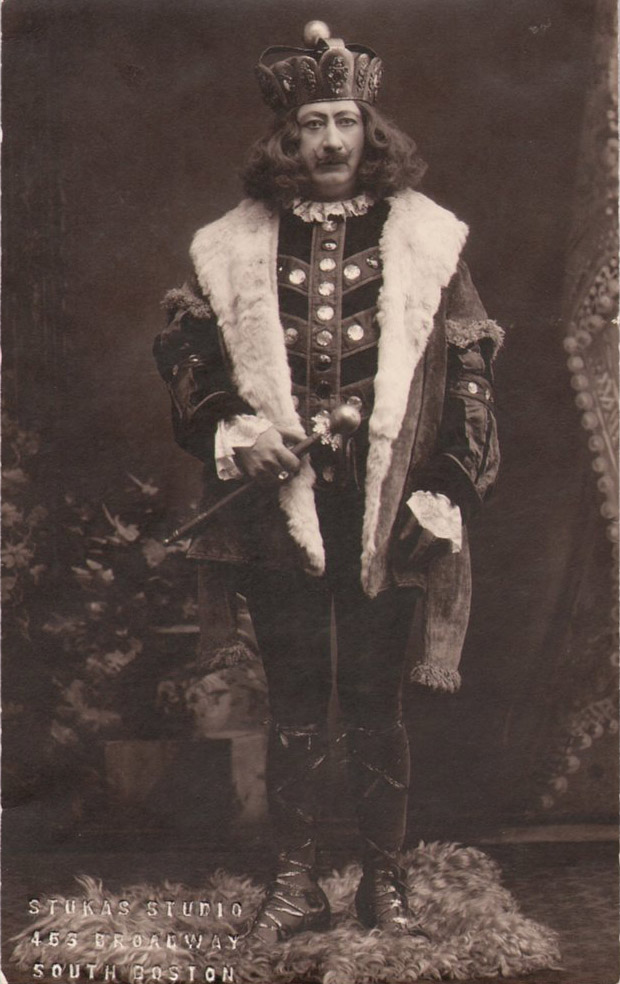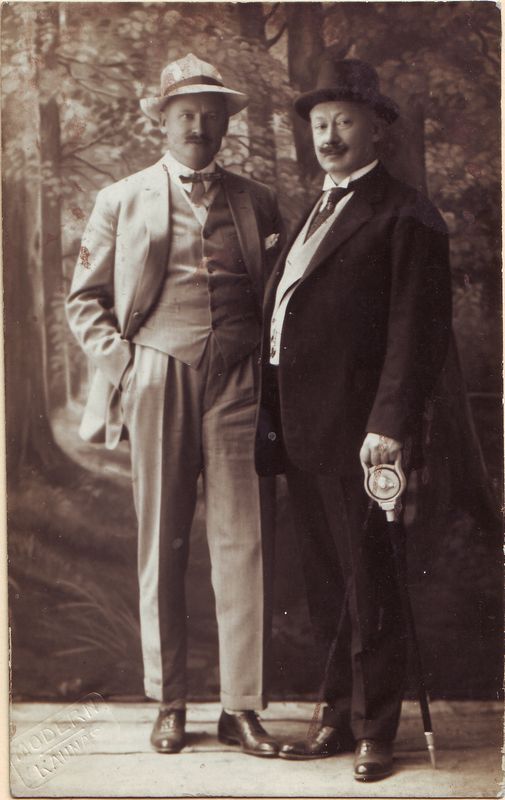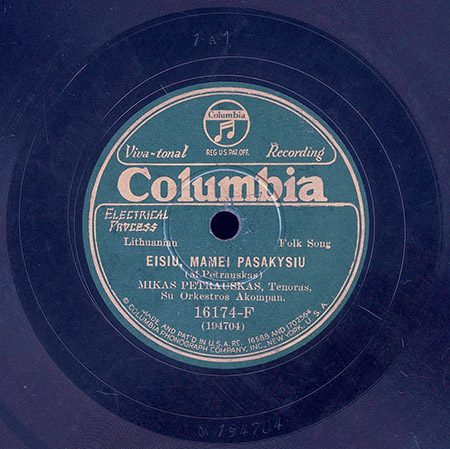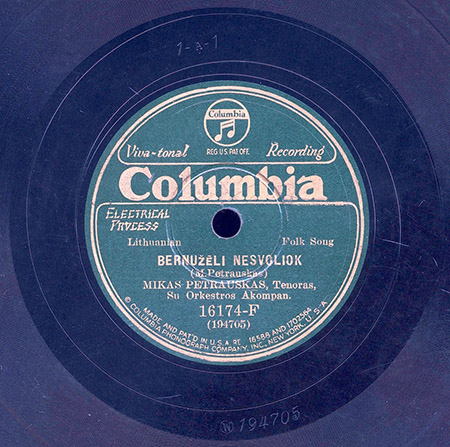He was the elder brother of Kipras Petrauskas. Originally, he studied
organ, and worked as an organist (like his father) and choir conductor for many years. From 1901 to 1906, he studied voice at the
St. Petersburg conservatory with Stanislav Gabel, and composition with Rimskij-Korsakov. Composer was to become his main job.
Already during his studies, he wrote the very first two Lithuanian operettas, and took also care of the stage direction in their
premieres.
In 1905, he was very active in the anti-Tsarist revolution in Vilnius, where his opera Birutė had its world premiere
at the Philharmonic Hall in 1906 – the first Lithuanian opera ever. By the end of that year, Mikas Petrauskas left the
Russian Empire for political reasons, and went to Switzerland, and in 1907 to Paris, where he added further composition studies
with Charles-Marie Widor.
From 1912 to 1914, he was back to Vilnius, then he emigrated to the USA, where he would live until 1930, mainly in Boston, Detroit
and Baltimore, interrupted by several extended visits to Lithuania, and a few months in England in 1921. From 1930 to his death,
he lived in Kaunas, at that time Lithuania's capital city.
He wrote a second opera (Eglė žalčių karalienė, Boston 1924), 19 operettas, dozens of songs (for
solo voice as well as for choirs), music for piano and violin, and he collected and edited 143 Lithuanian folk songs; he founded
and directed a Lithuanian conservatory in the US (first in Chicago, later in Boston), he organized choirs and theater productions.
Occasionally, he made also use of his vocal studies, and appeared as a tenor, without however coming anywhere close to his
importance as a composer: in 1906, when living in Switzerland, he staged
Lysenko's Natalka Poltavka, singing one of the tenor parts himself (unfortunately, I don't know which one, but both are
main roles). In 1911/12, while staying in Italy for further vocal studies, he sang "in productions of Italian opera theaters",
which is as vague as possible. And in his US period, he sang in concerts, but also in the 1924 Boston world premiere of his own
opera Eglė. Not least, he made a lot of records, exclusively with Lithuanian songs, mostly his own compositions.
 |
| Mikas Petrauskas in Eglė žalčių karalienė |
Reference, picture source 1 (Mikas & Kipras), picture source 2 (Eglė)



